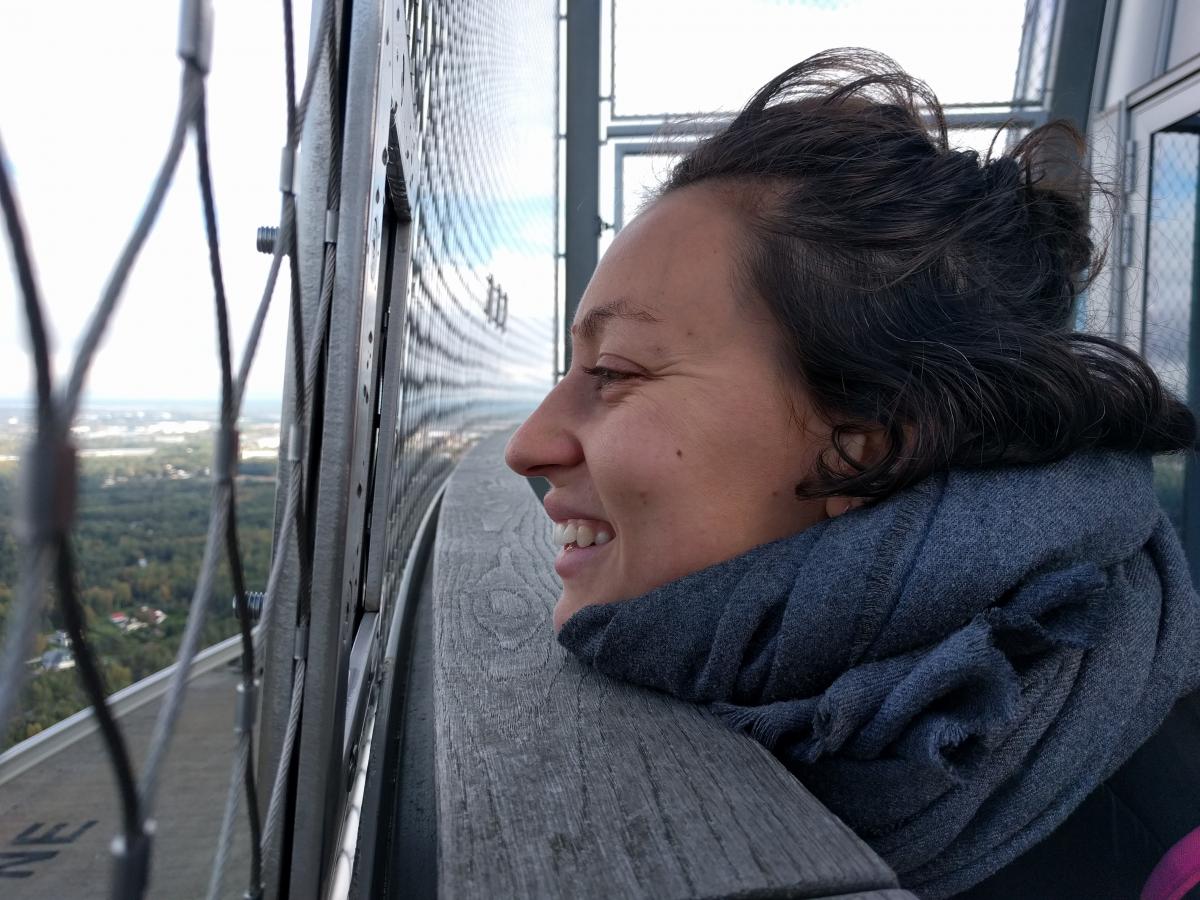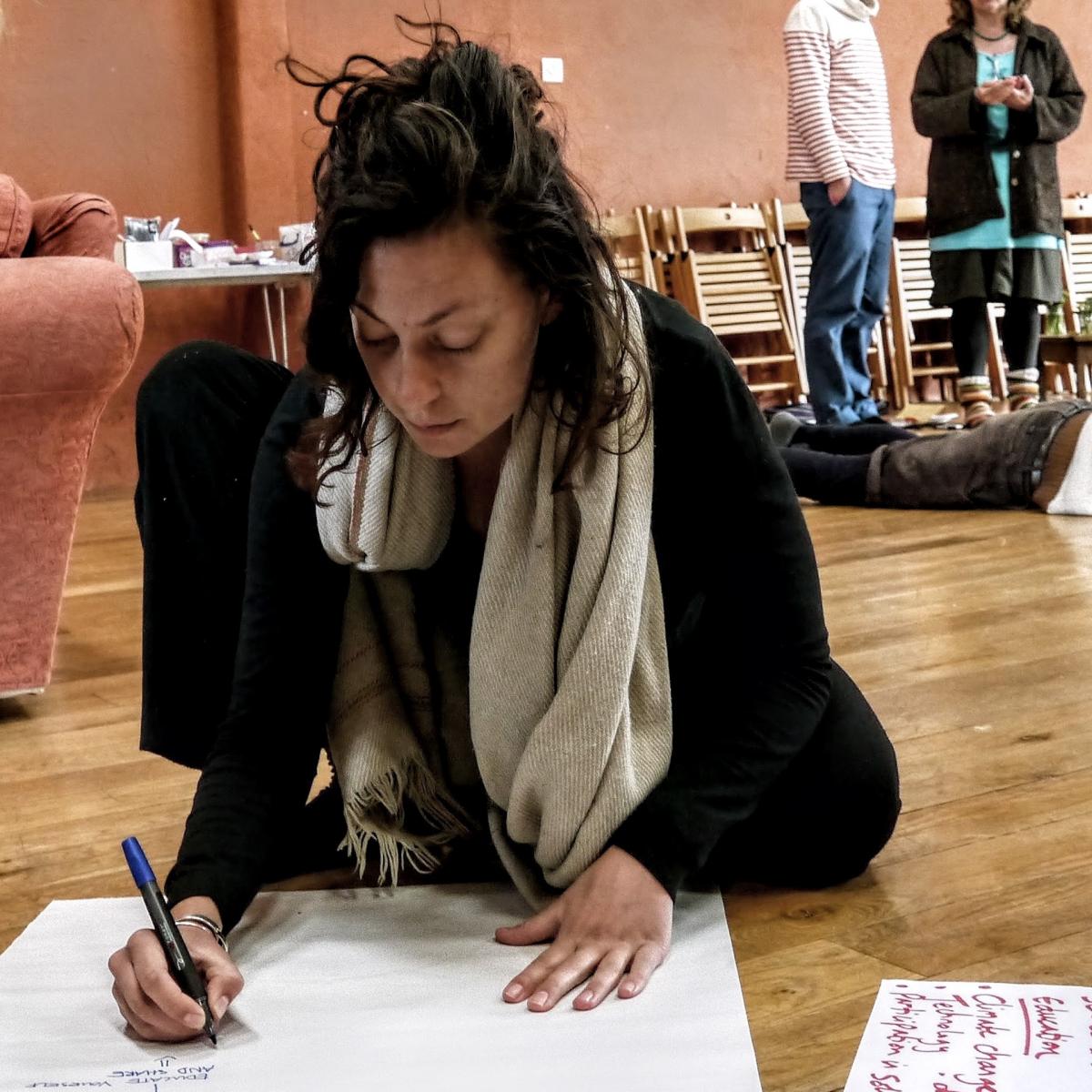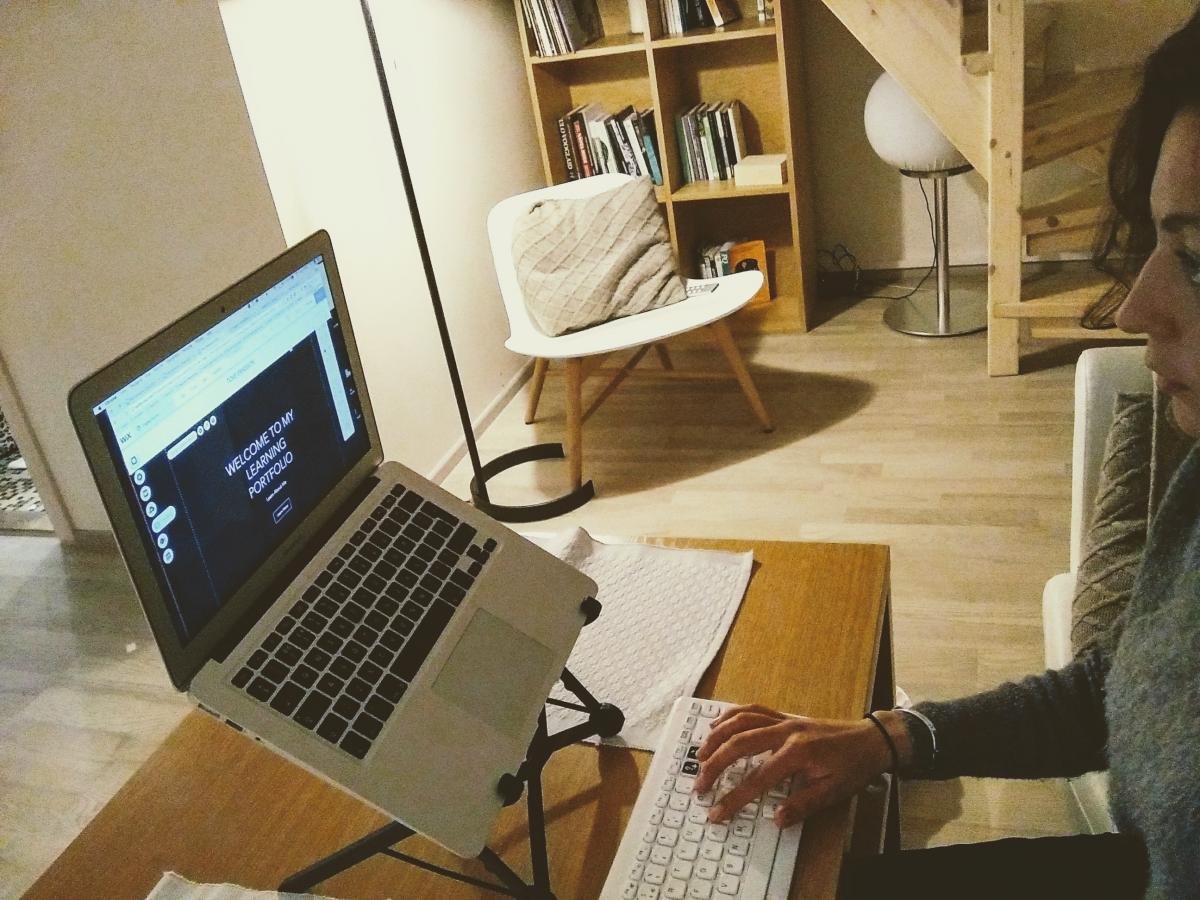
TV tower in Tallinn. Photo: Tove Eriksson
Tove Eriksson, originally from Sweden, has spent one semester studying Adult Education for Social Change in Tallinn as a part of a joint Master's degree, delivered and awarded by the University of Glasgow, the University of Malta, the Open University of Cyprus, and Tallinn University. Today, she works as a training coordinator at an NGO facilitating humanitarian work across the world. We met during the summer to discuss Tove's impressions of Estonia from the perspective of a Swede, a traveler, and a professional. This article is part of the Alumni Success Stories series, created in collaboration with the Estonian tech news platform Geenius.ee.
一 So, where did you study?
一 I studied an international Master’s in Adult Education for Social Change, coordinated by the University of Glasgow and involving three more institutions across Europe. It’s different from traditional exchange studies or studying abroad in general: courses are delivered in three different locations 一 Glasgow, Malta, and Tallinn 一 excluding the place where you will write your dissertation from. Estonia is one of the program’s co-creators, so I knew I would be spending one semester in Tallinn already at the stage of application.
一 How much did you know about Estonia before coming to study here?
一 Nothing at all, although Sweden and Stockholm are very close to Estonia. I grew up with an awareness of Estonia, Latvia, and Lithuania, but I knew very little about it and didn’t have many expectations, which strikes me in hindsight. Eventually, I was pleasantly surprised about Estonia and especially Tallinn, such a cool city! On a practical level, there are so many great places to eat and have a drink, which makes it much more alive and dynamic than I expected it to be. Setting the university aside, I had a really good time living in Tallinn. If you go outside of it, you get to see Estonia’s beautiful countryside. I was happy to discover the Baltic countries and to see them doing so well in spite of the grim pages of history.
一 Since you are from Sweden, it wasn’t that much of a cultural shock, coming here?
一 No, I wouldn’t say that was a big thing. Estonia and Sweden turned out to be very similar, both positively and negatively: you know, two Northern European cultures influenced by a cold climate. What’s interesting, I didn’t get as full of an experience as I could because of the way our Master’s was set up: we were studying separately from Estonian students, following our own curriculum. Most of the contact I had with the locals was during my placement, where I've been communicating with the older Estonians in the context of my profession.

A training in the UK. Photo: Tove Eriksson
一 Were there any difference in terms of student life?
一 We were studying hard, I must say. It was a tough semester, but a really great one. One of the things that contributed to that… I don’t know if it’s a common practice for Estonian universities, but I’ve learned a lot about digital tools and working with the online solutions. While studying, I learned how to apply my knowledge of adult education through the use of digital tools. It was a common theme for all the courses that we had and proved to be practically useful for me. Academically, it was a valuable and exciting experience, being entirely different from a lot of other places that I’ve been. Since it was the last semester before the dissertation, the workload was intense, and we were kind of moving into the winter, there was not much time left for having fun. Yet I loved the campus of Tallinn University, always full of people to hang out with, whether you are in the library, cafeteria, or any other shared space where you can meet up wit each other. It was a very nice environment. There was this one place with the stairs where you could sit outside, and people would always be there. It was a relaxed and sociable way of studying, so you can still have a great time while dealing with an intense workload.
一 So, what was it exactly that you were studying and what are you doing right now?
一 I’ve studied Adult Education for Social Change, which basically deals with the practice of an adult education in a way that creates active, engaged citizens aware of societal and political issues. While I writing my dissertation, I started working as a training coordinator at an NGO that focuses on training and capacity-building of humanitarian workers, dealing with natural disasters or emergencies. My job includes designing and adapting the courses and delivering the training. It’s been a year and a half now.

Tove with the participants of a training she delivered in Dhaka, Bangladesh. Photo: Tove Eriksson
一 Considering how close Tallinn and Stockholm are, was there anything you missed from Sweden?
一 By that time, we’ve been on the move for about a year together as a program cohort and got pretty close, and that became my home for those two years of Master’s. Wherever we were, was kind of where home was. My partner was also traveling with us, so I had a really great setup in that way. I didn’t even go back home while in Tallinn, because I’ve been really enjoying the city. Maybe because of how similar and close Stockholm and Tallinn are, I didn’t feel the need to miss home. Then again, to be fair, I’ve been living in the UK for the past ten years, so I am used to being away. There's only one silly thing I always miss: I am always in search of Swedish candies. In Estonia, salty liquorice is easy to find, which made me really happy. It’s that thing you can never find anywhere else, except for Northern Europe.
一 Estonians are very proud of being a digital country. How does it compare to other countries you’ve been to?
一 As I said, digital solutions were one of the main focuses of my Master’s program. At the university, we were always encouraged to make use of digital tools in our assignments and day-to-day work. In addition to that, I did my placement in a local organization that works with digitalization of teaching methods, where I got to see classrooms of the future, featuring desk-size tablets, robots etc. I haven’t come across that in my Master’s before or my general interaction with the education system. Estonians do take interest and pride in e-services.

Working on one of the modules in Tallinn. Photo: Tove Eriksson
一 Do you have any favorite places you liked to visit in Tallinn?
一 I’ve always liked Telliskivi and a few local restaurants: Must Puudel and a small Russian restaurant, the name of which I cannot remember now. In terms of arts, I recommend visiting Kumu Art Museum. Apart from that, one thing that I really enjoyed were Estonian saunas, which we often visted outside of Tallinn. It was also a way to get through the winter.
一 Do you intend to return to Estonia some time in the future?
一 I’d love to visit Estonia again. I’ve been traveling my whole life and now I intend to be based in Northern Europe for a bit longer, so I’d definitely love to go back. Professionally, I’d like to continue working on my own projects and collaboratons in adult education, so it would be fantastic to establish some links with Estonia.
Text: Joonas Alliksaar, Anastasiia Starchenko
